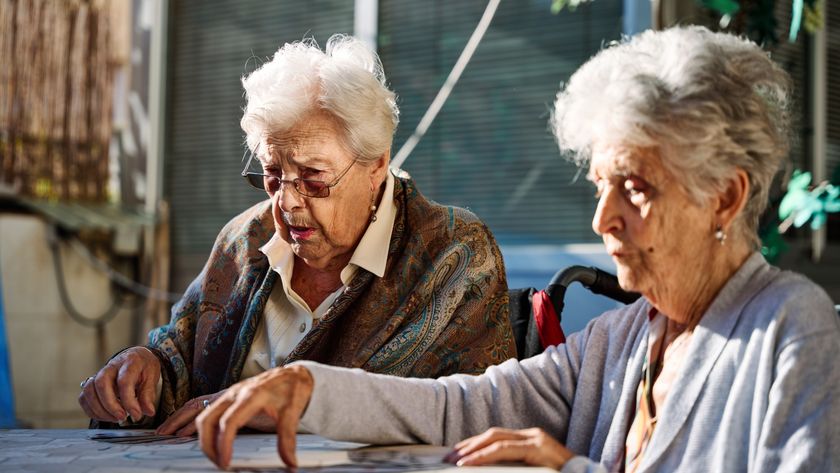Is 90 the New 80? Most 90-Somethings Feel Healthy

Perhaps 90 is the new 80: A new analysis finds that many Americans who reach age 90 and beyond say they are in good health.
Few 90-somethings in the study showed signs of depression or cognitive problems, although they took a lot of medications and had difficulty getting around, according to the findings, released today (March 20) in the journal JAMA Internal Medicine.
"These data provide a snapshot of Americans' health at age 90, which will help our health care system prepare for the needs of long-lived adults," said the study's lead author, Michelle Odden, an assistant professor of epidemiology at Oregon State University. [Extending Life: 7 Ways to Live Past 100]
The findings suggest that, despite experiencing chronic diseases and disability, Americans over the age of 90 could adapt to their changing health needs and remain positive about their health, Odden told Live Science.
According to the U.S. Census Bureau, the number of Americans age 90 years or older is expected to more than quadruple by the year 2050.
In the study, researchers analyzed data from about 1,900 men and women ages 90 and older who lived in four different regions of the United States: Forsyth County, North Carolina; Sacramento County, California; Washington County, Maryland; and Pittsburgh, Pennsylvania. All of the people in the new study were participants in the Cardiovascular Health Study, a long-running national study of heart-health risk factors in people ages 65 and older.
As part of the study, each participant underwent a physical and mental health examination every year between 1989 and 1999, as well as in 2005 and 2006. Then, researchers collected follow-up data on the participants' health and well-being by telephone interview every six months through July 2015.
Sign up for the Live Science daily newsletter now
Get the world’s most fascinating discoveries delivered straight to your inbox.
Physical and mental health
When the analysis was completed, 35 percent of the nearly 5,900 participants in the Cardiovascular Health Study had lived to at least 90 years old. Women tended to outlive men and represented about 65 percent of the group involved in the study.
The participants came from a variety of living situations; some lived in the community, while others lived in assisted living facilities and nursing homes, Odden noted.
Most of the women (59 percent) and men (62 percent) rated themselves as being in good, very good or excellent health.
Many 90-somethings said they not only felt physically healthy, but also experienced good emotional well-being: About 77 percent of them reported no symptoms of depression.
Despite this good news, the oldest of the participants also faced health challenges: About one in three of the men and women had cognitive problems, the study found.
And many older adults were coping with chronic diseases. The findings revealed that people in their 90s were taking six medications regularly, on average. The most common types were medications for high blood pressure, heart health and thyroid problems.
"I was surprised by the high number of prescription drugs used in this population," Odden said.
Another common ailment was a problem with mobility; most of the women (75 percent) and men (59 percent) reported that they had trouble walking half a mile (0.8 kilometers).
To ward off mobility issues later in life, the old adage "use it or lose it" certainly applies, Odden said. Staying active throughout life is the best prevention strategy for mobility problems down the road, she said.
Follow Live Science @livescience, Facebook& Google+. Originally published on Live Science.
Cari Nierenberg has been writing about health and wellness topics for online news outlets and print publications for more than two decades. Her work has been published by Live Science, The Washington Post, WebMD, Scientific American, among others. She has a Bachelor of Science degree in nutrition from Cornell University and a Master of Science degree in Nutrition and Communication from Boston University.



